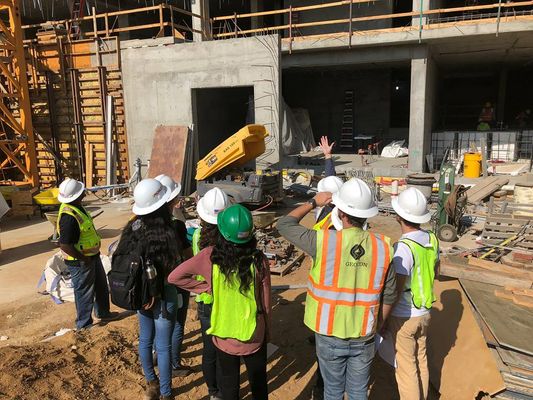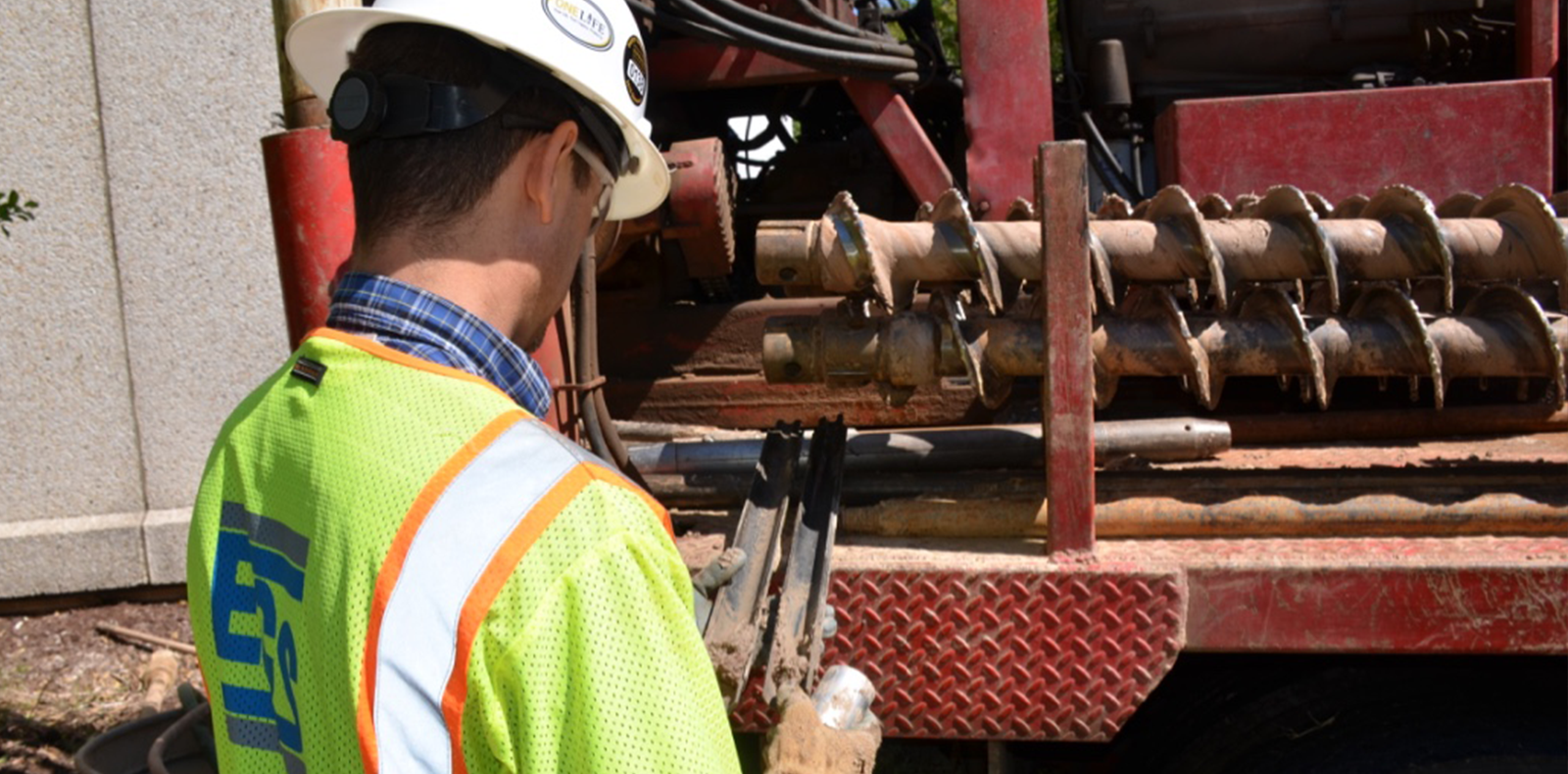Crucial Top Qualities of Effective Civil Consulting Engineers
Crucial Top Qualities of Effective Civil Consulting Engineers
Blog Article
A Comprehensive Introduction of the Secret Responsibilities of Geotechnical Engineers in Website Characterization and Ground Enhancement Techniques for Engineering Solutions
Geotechnical designers are integral to the successful implementation of design projects, tasked with the vital obligations of website characterization and the application of ground improvement strategies. Their job entails a thorough analysis of subsurface problems, utilizing numerous screening techniques to identify soil and rock residential or commercial properties.
Role of Geotechnical Designers
Geotechnical engineers play an essential function in the design and construction of infrastructure by analyzing the actions of soil and rock below the surface - geo tech engineering. Their obligations encompass assessing subsurface conditions to educate style decisions that ensure structural security and security. By conducting detailed evaluations of dirt properties, consisting of shear strength, compressibility, and leaks in the structure, geotechnical engineers supply important information that affects the option of suitable construction products and techniques
In addition to assessing soil technicians, geotechnical designers are charged with determining possible hazards such as landslides, sinkholes, and ground negotiations. Their proficiency assists mitigate threats connected with these geotechnical sensations, thereby shielding both the atmosphere and public safety and security. They additionally collaborate very closely with various other design self-controls, guaranteeing that geotechnical considerations are integrated right into overall job layout.
In addition, geotechnical engineers participate in the analysis of existing frameworks, supplying recommendations for retrofitting and repair services when necessary. Their extensive understanding of soil-structure interaction is important for the advancement of lasting facilities remedies. In general, the function of geotechnical engineers is essential to the successful awareness of building and construction tasks, ensuring they are safe, durable, and compliant with governing standards.

Website Characterization Procedures
Efficient site characterization procedures are necessary for recognizing the subsurface problems that affect job layout and execution. Geotechnical designers employ a methodical method to collect, assess, and analyze information pertaining to rock, groundwater, and dirt attributes. This process begins with a thorough evaluation of existing literary works and archaeological site data, giving insights into previous website problems and possible challenges.

Data evaluation follows fieldwork, where engineers utilize geostatistical approaches to analyze findings and develop geological designs. Via diligent site characterization, geotechnical engineers lay the groundwork for effective project execution, reducing unforeseen problems and maximizing resource allotment.
Soil and Rock Testing Techniques
While recognizing subsurface conditions is crucial, the option of appropriate soil and rock testing approaches is equally vital for exact evaluation and layout. Geotechnical engineers utilize a selection of testing strategies to evaluate the physical and mechanical properties of soil and rock materials.
Research laboratory examinations, such as Atterberg limits, grain size evaluation, and unconfined compressive toughness examinations, offer necessary data on dirt behavior under different wetness problems and packing scenarios. These examinations assist establish soil category and forecast settlement or shear toughness attributes essential for foundation design.
In-situ testing methods, consisting of Criterion Infiltration Examinations (SPT), Cone Infiltration Examinations (CPT), and stress meter examinations, enable engineers to gather information directly from the ground. These methods offer important insights right into the dirt's thickness, consistency, and stratification without the need for comprehensive sampling.
Rock testing normally includes core tasting and research laboratory analysis to evaluate buildings like uniaxial compressive stamina and rock top quality classification (RQD) Together, these soil and rock screening techniques enable geotechnical engineers to make enlightened choices relating to site-specific difficulties, guaranteeing the safety and security of engineering solutions.
Ground Renovation Strategies
Ground renovation techniques are essential for enhancing the engineering residential or commercial properties of dirt, thereby boosting its load-bearing ability and decreasing negotiation. These techniques are vital in addressing difficulties provided by bothersome or weak soils, which can dramatically affect the stability and toughness of frameworks.
Different ground enhancement techniques are used, consisting of compaction, grouting, and dirt stabilization. Compaction includes enhancing the thickness of dirt with mechanical methods, which boosts its shear strength and lowers compressibility. Grouting, on the various other hand, includes injecting a fluid material right into the ground to fill up spaces and boost soil cohesion. This strategy is particularly efficient for treating loosened sands or broken rock.
Dirt stablizing includes a series of methods, from chemical ingredients to mechanical treatments, targeted at enhancing the dirt's resistance to disintegration and deformation. Methods such as lime stablizing or concrete mixing alter the properties of the dirt at a fragment degree, boosting its overall performance.
Relevance of Geotechnical Analyses
Geotechnical assessments play a vital function in the preparation and layout of engineering projects, as they supply necessary details regarding the subsurface conditions. Comprehending dirt properties, rock developments, groundwater degrees, and potential geohazards is crucial for ensuring the security and security of frameworks. These evaluations allow designers to make informed choices pertaining to site choice, design criteria, and building and construction approaches.
The importance of geotechnical assessments expands beyond preliminary task stages; they are crucial in danger monitoring and expense efficiency. By look at this web-site recognizing potential issues early, such as soil negotiation, slope instability, or extreme groundwater, designers can develop proper reduction methods, lowering the probability of architectural failures and costly hold-ups. These assessments sustain conformity with regulative demands and enhance the sustainability of design methods.

Final Thought
Finally, geotechnical engineers are vital to making sure the safety and security and security of engineering jobs with extensive website characterization and ground enhancement strategies. civil consulting engineers. Their methodical method to assessing subsurface problems, incorporated with their recommendations for reliable ground alteration, considerably improves dirt residential or commercial properties and load-bearing capacity. The proficiency of geotechnical designers not only assists in informed job planning but likewise ensures conformity with guidelines and cultivates efficient communication click this site among stakeholders, eventually adding to effective design end results
Geotechnical engineers play an essential duty in the style and building and construction of framework by assessing the habits of dirt and rock under the surface area. By carrying out in-depth evaluations of dirt buildings, including shear compressibility, permeability, and stamina, geotechnical designers give essential data that affects the option of ideal construction materials and methods.
In addition to assessing dirt technicians, geotechnical designers are entrusted with determining prospective hazards such as landslides, sinkholes, and ground settlements. Geotechnical engineers employ a systematic approach to collect, review, and analyze data concerning dirt, rock, and groundwater attributes. By determining possible problems early, such as soil negotiation, incline instability, or extreme groundwater, designers can develop proper mitigation methods, minimizing the probability of structural failings and expensive hold-ups.
Report this page